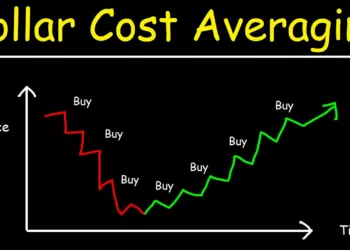So check it—A dear friend of mines who is also one of my readers dropped a comment on my last piece about home equity loans, saying HELOCs can “create opportunities if used properly” and that they’re basically like business loans but cheaper. He also wrote, “a home is an investment, no different than putting money into the stock market.”
Man, we gotta unpack all that.
“HELOCs Create Opportunities”
Listen, I hear this argument all the time, usually from the same financial “experts” who got people underwater back in 2008. Here’s the real: yes, technically any borrowed money could create opportunity—a business loan, a personal loan, or selling your kidney on the black market. The question isn’t can it create opportunity, but rather is it the smartest way to fund that opportunity?
When someone says “HELOCs create opportunities,” I always ask them: “Compared to what?” Compared to liquidating other investments? Compared to finding a business partner? Compared to starting smaller and scaling up?
Here’s what most folks don’t consider: when you tap home equity, you’re putting your literal roof at risk. That’s different from most other funding sources.
“HELOCs Are Just Like Business Loans But Cheaper”
Yo, this idea needs addressing for real.
First off, yes, HELOCs typically have lower interest rates than traditional business loans. That part’s true. But there’s a critical reason why: collateral. The bank can take your HOME if you default. They can’t take your BUSINESS with a business loan—they can take business assets, but not your primary residence.
That “cheaper” interest rate comes with an enormous risk premium you’re paying—your housing security.
Second, business loans often come with mentorship, additional resources, and are structured specifically for business purposes. They frequently have terms that align with business cycles and revenue patterns.
Finally, business loan defaults don’t make you homeless. HELOC defaults can.
“A Home Is an Investment Like the Stock Market”
Nah, fam. This comparison is straight-up flawed in so many ways:
- Liquidity: You can sell a stock in seconds. Try selling your house in seconds.
- Transaction costs: Stock sales might cost you a small commission. House sales? We talking 5-6% in realtor fees, closing costs, repairs, staging—easily 8-10% of the value gone.
- Diversification: Most financial advisors would call you crazy if you put all your money in one single stock. But that’s exactly what you’re doing with a house.
- Utility function: You don’t live inside your stocks. Your home serves a purpose beyond investment—it keeps you dry when it rains.
- Leverage and risk: Most people don’t go into 80% debt to buy stocks. But they do for houses.
Don’t get me wrong—real estate can be a solid investment, particularly income-producing properties. But your primary residence? The math just hits different.
So When ARE HELOCs Appropriate?
I ain’t saying HELOCs are evil. They’re just widely misused. Here are situations where a HELOC might make sense:
- Short-term bridge financing: If you need capital for a few months before a guaranteed payout (like selling another property)
- Home improvements that legitimately increase value: And I’m talking about improvements where you can document the ROI, not just “trust me, this kitchen renovation will definitely pay for itself”
- Consolidating drastically higher interest debt: If you’re drowning in 25% credit card debt and have the discipline not to run those cards back up
- Genuine emergencies: As discussed in my previous article Why Home Equity Loans Should Be Your Last Resort, Not Your First Option
The Bottom Line
The financial industry loves to dress up debt as “leverage” and “opportunity.” They use phrases like “make your equity work for you” because it sounds better than “put your home at risk to get cash now.”
I’m not saying don’t ever use HELOCs. I’m saying understand exactly what you’re doing, and make sure you’ve explored all other options first. Your home isn’t just an ATM with a front door and some windows.
So to my friend who commented—I feel you. In theory, borrowed money can create opportunity. But theories don’t make mortgage payments when things go sideways. I’ve seen way too many people lose their generational wealth playing these games.
Stay alert with your finances!
DISCLAIMER: The views expressed in this article are solely my personal opinions and are provided for educational purposes only. This content should not be construed as professional financial, investment, or tax advice. Financial decisions, including those related to HELOCs and real estate investments, carry significant risks and should be made after consulting with qualified financial professionals who can assess your individual situation. Interest rates, loan terms, and real estate market conditions vary by location and change over time. Your personal financial circumstances, credit history, and local laws will significantly impact the appropriateness of any financial strategy discussed in this article. I am not responsible for any decisions made based on this content. Always conduct thorough research and seek professional guidance before making important financial decisions.
















































